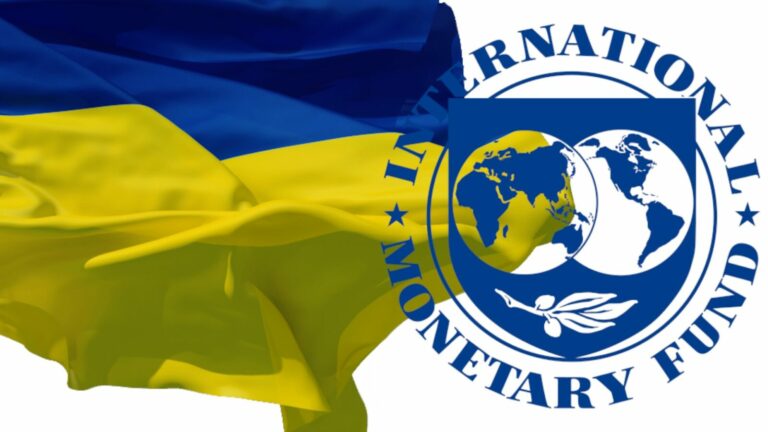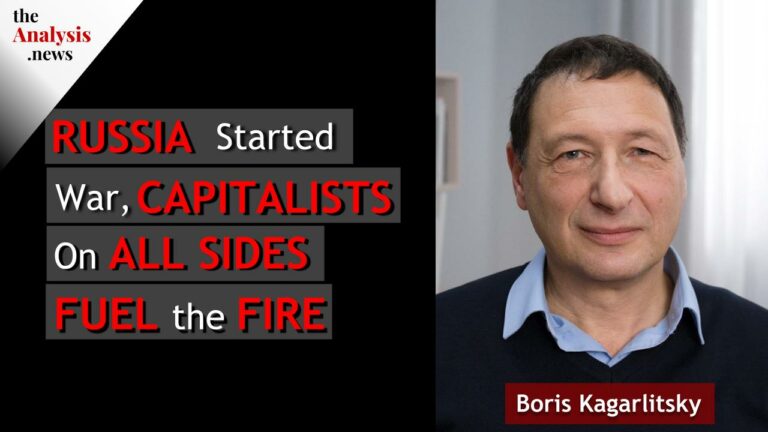The Rise of Authoritarianism in Eastern Europe – Pt 1/2 The Barricade
Four journalists from Eastern European countries analyze the rise of far-right movements, governments, and Western hypocrisy. This is a co-production between the Barricade and theAnalysis.news
Boyan Stanislavski
Hello and welcome to another episode of the podcast in which the Analysis collides with the Barricade. This episode is a collaboration between the editorial teams of the two outlets. My name is Boyan Stanislavski and I’m a senior editor at the Barricade. I’ll be filling in for Paul Jay, who is unable to host today’s show due to a last minute scheduling conflict. Małgorzata Kulbaczewska of the Polish leftist website Strajk, along with Maria Cernat and Vladimir Mitev, with whom I have the pleasure of working at the Barricade, are with me today. Welcome to all of you.
All right, so the main topic of today’s discussion is authoritarianism, specifically new authoritarian tendencies in Europe, the EU, and most notably Eastern Europe. And all four of us here were invited to speak on the subject because this is the region from which we all hail and with which we are most familiar. Some European leaders have made it clear in recent years that they are concerned about Democratic backsliding and creeping authoritarianism in some member states. As a result, the EU even created a new mechanism in late 2020 that links allotments of union funds to EU member states’ respect for the rule of law, whatever that means. The EU’s funding values and even foreign policy objectives to some extent are both threatened by the slow “autocratization” of political regimes around the world, especially in Europe, of course. For years, the EU has struggled to respond to this “autocratization” within Europe, especially in Hungary and Poland. The problem was exacerbated by sending EU funds to governments that undermined democracy and human rights and rule of law. The new rule of law conditionality is an attempt to strengthen, I suppose, the EU’s toolkit to respond to these trends, but for the time being, it doesn’t appear to be really going anywhere. The EU is still a dog that barks a lot but doesn’t really bite. And the question here that I’d like to start with: Is the EU our only hope? Because this is how it’s widely presented, that it is the only hope of those who believe authoritarian reactionary tendencies are politically dangerous, especially in the light of the EU’s own authoritarianism, which seems to be the unspoken elephant in the room. Instead, we got a lot of anti-Russian and anti-Chinese rhetoric.
So I want to go first to Małgorzata with this question. Is the EU our only hope? Because we can all recognize, especially yourself and myself, since I’ve lived in Poland for the last 20 something years and you are from Poland. You’ve always lived here. So we kind of understand very well the dangers and the problems with authoritarian governments, like the one of, formerly speaking, Mateusz Morawiecki, but practically Jarosław Kaczyński’s government here in Poland that is backed by a Catholic fundamentalist right wing party called Law and Justice that’s been in power for the last six years. So it’s a problem, obviously. There are many problems linked to that political process, but is the EU our only hope? What do you think?
Małgorzata Kulbaczewska
Well, I think that the EU is not our only hope to get rid of the authoritarian government in Poland, but I would even say more. We were already members of the European Union for more than a decade when Jarosław Kaczyński’s party won parliamentary elections and began dismantling the rule of law. And already we were even praised as a country that did great progress in terms of democracy, in terms of functioning within the European community. And Poland even had the ambitions to lead other Eastern European countries, such as Belarus or Moldova, into the European community. And after that, Polish voters voted for conservative nationalist party Law and Justice, as you said, and all the progress that we made disappeared. So it turns out that the European Union is not our only remedy against authoritarianism, but it’s exactly the opposite. The rise of authoritarian tendencies and non-democratic parties within Poland and in any other state that belongs to the European Union is a result of the internal dynamic of the society and of any particular state. And the European Union has rather proved that can’t really do anything, if something like this happens. Well, I would also point out one thing. Jaroslaw Kaczynski and his party are being criticized by the European Union from the very beginning of their government. And still, the European Union did nothing that could really undermine their position. And what is even worse, in my opinion, the European Union intervened in the strongest way, not at the moment when it should have reacted. Let me just remind you that Law and Justice government came under heavy criticism after the Polish conservatives began their anti LGBT campaign, which is, of course, odious and its worthy of this criticism. But the European Union’s answer to anti abortion law that was introduced in Poland in late last year was not that strong. Even so, it seems that not only the European Union is ineffective when defending democracy, but also does not respond to the will of the citizens of Poland that want to defend democracy. So that is my impression.
And finally, I’m happy that you mentioned that the European Union has its own authoritarian tendencies. And I let me just add one more thing. The European Union did not appear on the political scene as a club of honest democrats or people who wanted to bring social justice and happiness to everybody. It is an economic project. It is a capitalist project. And so we need to look at the European Union and its capacities within the logic of profit, which is internal to capitalism. And in this context, we can understand much better why the authoritarian tendencies in the some of the Western countries are left behind while other European Union looks with such an interest on Hungary and Poland.
Boyan Stanislavski
OK, thanks for that. And I’d like to go to Maria now with a question, because obviously there are authoritarian tendencies and they are dangerous. And we can see that in many cases, we can feel that, we can experience that. And we’re obviously against it. But strangely enough, when it comes to discussing authoritarianism in the media, then normally our journalists, they point to Russia, to China, and they say that the danger comes from there. Somewhere from the east and this is a process that we have to counter, that we have to contain, that we have to prevent from sort of getting rooted in the European Union, in Europe in general. But is this authoritarianism, in your opinion, some kind of attempt to copy the Chinese political system or the Russian political system in Poland, Hungary, whatever, Bulgaria? Or is it rather a process that has its own dynamic and the roots of which we can rather look for, particularly in the processes that happen in the West? Not so much in the East, because that’s where we are integrated and we can obviously see growing authoritarian tendencies not only in Poland and Hungary, but also in Great Britain, in France, in Denmark. In many countries we can see the rise of what is largely referred to as the populist right. And obviously, there is an authoritarian element in those movements. And I’m wondering whether it’s just hypocrisy or maybe there is even an attempt to defend some authoritarianisms at the expense of other authoritarianisms and to create this artificial division where there are “good” authoritarianisms, like the EU’s authoritarianism and “bad” authoritarianism, like Russian, Chinese, or Cuban, for that matter. What’s your take? Please go ahead.
Maria Cernat
Well, in terms of authoritarianism, we have to define this term. What does it mean actually? What does it mean to have authoritarianism? Because it’s very hard to define what you mean by that. And my perspective is the following. You have authoritarianism in economy or you have authoritarianism in politics. And unfortunately, the European Union wants to make some sort of peace and wants to make compatible the economic authoritarianism with the political democracy. And for decades, we’ve been fed this narrative that it is indeed the only way, because there is no alternative if we remember the famous quote from Margaret Thatcher. So for decades, we’ve been fed this narrative that basically capitalism is the only way to guarantee democracy. While what we are seeing in the past three decades is that it is almost impossible to make compatible with economic authoritarianism, the economic inequality, the extreme poverty, and all of the social evils that result from this type of organizing the economic system and democracy. And I will turn now to a famous British philosopher that is a liberal. I will not turn to Marx. I will turn to Isaiah Berlin, who wrote four essays on liberty. And he’s praised and cherished among the most important liberal philosophers. And in his essays, he wrote the following: “Offering political and civil liberties to people who are hungry is to mock them.” So this is not coming from Marx. This is coming from the core of the liberal political philosophy. So how come we ended up, especially in Romania, believing that this way of organizing the economy, where you have a small elite of people that are well-off and the vast majority of people that are extremely poor, can be made compatible with democracy? Of course it cannot. It is a structural problem if you ask me. And the last thing that I want to emphasize, since you put a general question to Małgorzata, and I would like to comment on that. Of course, the European Union was billed as an economic project, and the idea was that the economists and economic system have to somehow discipline the political system and that you will have stability and prosperity once you put the economy first. They never thought that the economy itself is done by people, not by robots. And you will have the corruption, but you will just move the problem somewhere else. And this is just at the surface of things. When you come back to me for my next take, I will discuss also some numbers, some staggering numbers here in Romania that would support what I just said.
Boyan Stanislavski
Right, thanks. So before I go to Vladimir, I just want to refer to the question of European Union being an economic project or an economic community. And of course, it is that. But I think that in the context of growing authoritarianism, one cannot really ignore the fact that the European Union, at the end of the 90s and the beginning of the 21st century, something happened. Something changed in a major manner because from being an economic community, I think they decided they’re going to try and make an attempt to create something more than just an economic community. They’re going to try and integrate Eastern Europe and other countries, and they’re going to try and create some kind of super-national organization, which is not exactly a state, but it issues its own passports, it has its own borders, like two kinds of borders, the Schengen border and the outside border of the European Union. And it has its own legal system, which is superior to the legal systems of the countries that belong to that community. And it produces certain processes, which I have the feeling they got pretty much out of control. Or perhaps they are the result of the law of unintended consequences.
Anyway, we could discuss that a little later, I suppose. But I want to go to Vladimir now. And I want to ask, Vladimir, I come from Bulgaria. I’ve lived there for quite some time as a kid and teenager before I emigrated to Poland. And obviously my observations when it comes to Bulgaria are a little more superficial or more general maybe than yours because you are there on the ground. But I think we can agree that the Bulgarian regime of the last well, almost 12 or 13 years, of Boyko Borissov’s reign. And his party, GERB, which is by and large an invention of the German conservatives that it has been, because the mechanisms are still in place, a kind of authoritarian regime. Not maybe the most classical version of authoritarian regimes, maybe not in such an overt manner, like the way we can observe that in Poland or in Hungary, the countries which confront the European Union and its liberal ideology with its overt authoritarianism, they even boast about it, like when you look at Kaczynski their acolytes. But in Bulgaria, we’ve also had that and somehow no one has really paid much attention to this. I mean, no one spoke about how they’re going to prevent the flow of money from the European Union to Bulgaria because of the rule of law not being implemented properly. And obviously, there are problems, no matter how you actually understand this notion of rule of law, there is nothing even remotely resembling the rule of law in Bulgaria. So why do you think that is? How come some authoritarianisms are ignored and some authoritarianisms are being criticized actively despite the fact that particularly the Belarusian, for example, authoritarianism or the Russian authoritarianism, they are outside the European Union, yet they are our main concern somehow. What’s your take?
Vladimir Mitev
First, before answering your question, I’d like to add something on the EU. You said that in the 90s it changed. And I guess you mean the change which was provided for by the white papers, which defined the EU as a union of competition. And we have to remember that the EU started more as a solidarity union. It was a large project of the left after World War II. And this evolution to European Union competition, it changed the course for a number of decades and this is what we see now. And in the case of Bulgaria, we know that Boyko Borissov was on good terms with Viktor Orban and Bulgaria had this image of the the poorest and the most corrupt country in the EU. But as we see this cooperation and verification mechanism, which exists for Bulgaria and Romania, which observes the judicial system, and in the case of Bulgaria, also has links to the local mafia, it hasn’t provided any significant change in Bulgaria in terms of fighting against corruption. And it looks like Borissov was just a clever Orban for a long time in the sense that he didn’t oppose openly the West. He was somehow collaborating with foreign investors while also providing better conditions for Bulgarian capital, for Bulgarian firms who supported his political project. And we see that in the EU maybe that could be a fault. The international bourgeoisie, if we may say, collaborates very well with the local one, the national one, even though they somehow sometimes represented his competitors, in having opposite interests. And why Borisov was not observed, I guess, for a number of years, both outside and inside there was some kind of agreement with his European face of Bulgaria. And importantly, he had the backing of the American side. And I guess the changes which we started seeing in the last year with the protests, which started exactly one year ago, and they were opposed to the anti-corruption agenda which was applied by the chief prosecutor. But that is a long issue and maybe I could return to that later. In any case, these protests showed that the consensus about Borissov has changed. And as we see now, it looks like the Borissov government, which was a union with the nationalists, it was well set for the Trump times. And we know what Trump means and represents. But when Biden came to the White House, it was obvious now that Borissov was no longer the desired face of Bulgaria or Western Europe. And I guess what we see now in Bulgaria is a gradual dismantlement of his regime. And I guess it will take time because his party was equal in a way, to the party state which we had until 1989.
Boyan Stanislavski
Which was authoritarian, obviously, as well.
Vladimir Mitev
Yes. I guess that is the reason why Bulgarians now can’t form a government. One of the reasons. Of course, another reason, if I may say just in short, is that we don’t have the political culture of dialog. And I guess that is another aspect to the authoritarian discussion. We have a number of leadership parties, parties with a leader. And they are somehow very disciplined parties. But often there is no internal political life in those parties and they have very authoritarian structures. So that explains one of the reasons, not the only one, why now the parties which come in parliament after Borissov’s is gone can’t reach an agreement and form a government.
Boyan Stanislavski
Yeah, thanks for that. I think it’s a very insightful remark because that kind of speaks to the question whether we actually do have real choice. Whether we actually do have a real choice between authoritarianism and democracy. In theory, of course, we do have that choice. We have all kinds of choices. But I’d like to go to Małgorzata now because you’re a historian, so you know a little more about the history of the political regimes in Europe. And I find it a bit strange and quite infantile to speak about democracy as if it has always been around. I mean, this is how authoritarian regimes are presented to the public opinion, particularly in the West, as if democracy is a construct that has always been around since the inception of humanity or since the beginning of the recorded history of humanity. And now suddenly there are those incidents which are inexplicable because Orbán is terrible, Kaczynski is terrible, and Putin is terrible. And I agree to a certain extent that those are terrible politicians. I mean, obviously, I’m a leftist, so I don’t like authoritarian tendencies. But I just can see that they are demonized beyond any reason. When you look at the history of particularly Eastern Europe, you will easily observe and come to the conclusion that for the last couple of hundred years, some kind of authoritarianism was and has been the norm and not the exception as it is presented right now, and I don’t want to come across as someone who defends authoritarianism or authoritarian tendencies today. And I do not think that today’s authoritarianism is a simple extension of whatever happened 100 years ago, 200 years ago, or even 50 or 60 years ago, before and after the Second World War. But still, this should not be, I suppose, presented as something which is really our biggest problem, because throughout modern history, our biggest problem here in Eastern Europe was not so much the lack of democracy, it was poverty. That was the most important thing. If you look at 100-150 years ago, you will easily see that people used to function on the verge of biological survival. And it’s only gradually started getting kind of civilized. Life became more and more bearable until the People’s Republics came, which was a major civilizational stride forward, despite the fact that those projects were authoritarian. I think we can agree that to a large extent throughout their existence, they did enjoy a significant, significant amount of support from the side of the population. The populations of those People’s Republics were simply more interested in actual development, in actual civilizational uplift than in whether it was a one party system or two party system and so on and so forth. Do you think that this perspective, that I presented in very general terms, is correct?
Małgorzata Kulbaczewska
Well, on one hand, you may point out that indeed, Eastern Europe did not enjoy liberal democracy for most of its history. On the other hand, you may also point out that it was in Eastern Europe and specifically in Russia when the Russian Revolution took place and people actually tried to impose the most democratic system ever because the beginnings of the Russian Revolution was indeed a stride towards the council system or the Soviet system, where ordinary people would decide everything on every level in a collective democratic manner. So as you can see, on the one hand, indeed Eastern Europe is not the place where democracy seemed obvious. And on the other hand, in every epoch of the history of Eastern Europe, you might point out to people who actually tried to organize in a democratic manner outside of the system that they lived under or who tried to democratize the system they lived under. In fact, in terms of searching for popular democracy, Eastern European history is much richer than one might expect and definitely much richer than Western Europeans are going to admit. But I think this is a subject for yet another debate. And here I would like to stick to what you also said, that poverty and, I’d say, civilizational backwardness was our key problem over centuries, over decades. And still we can see in Eastern Europe that still we can’t really understand the rise of new authoritarianism in Poland and in other countries of Eastern Europe if we don’t take into consideration these economic and social contexts.
Let me state the obvious again. People are not resorting to strong leaders in Eastern Europe only because they are disinterested in anything or that they want to be led by somebody wiser than them. People are resorting to strong leaders who, in their opinion, are the ones who have a vision for the country and who have a vision to ensure basic stability to everybody. And this is the key reason for which Kaczyński’s party won its victory in 2015 and won another election four years later, even after they actually began dismantling the rule of law in Poland. The successes of authoritarian parties in Eastern Europe in the modern years are actually quite easy to understand. We don’t need to resort to a long history of the region. We should rather have a look at what happened once the People’s Republics fell and how the neoliberal transformation hit the populations. Let me just remind you that we are talking about populations which were actually got used to a state that actually cared for its citizens in some way. Of course, those were authoritarian states, and of course the citizens did not enjoy a full set of democratic liberties, and of course these countries could have been reformed so that liberties do emerge in them, but still, those were countries that offered a level of economic stability, which was definitely not obvious to those countries in the wider historical perspective. So I would say that resorting to strong leaders who offered a kind of stability was at least a solution that was worth considering for people in most of the countries of Eastern Europe. And here we come again to the question of capitalism, neoliberalism, and throwing people into instability. Had the left in Eastern Europe been stronger after the beginning of the 90s, we could have gone another way. It was not so. We ended up with what we have. But the economic factor was first and we need to remember that.
Boyan Stanislavski
That’s right. Thanks a lot. And now I want to go to Maria with the question, because everything that was explained here by all of you so far boils down one thing. Those authoritarian regimes that have emerged recently in Eastern Europe or are emerging and are attempting to take power in Western Europe, are a product, not so much of history, but rather a product of the current circumstances. And the current circumstances, when you look at them closely, are very unfriendly or hostile to working people, the majority of those societies in the European Union or in Europe in general, like austerity, neoliberalism and the general destruction of the civilizational standards that were achieved on both sides of the Elbe River, in the former Eastern Bloc and in Western Europe. On the one side of the river, we had the Soviet model and on the other side of the river, we had the Western Social Democratic welfare state model. And both of them actually failed in the final aftermath. And it’s another conversation, of course, why and how the left has never analyzed that or never paid enough attention to that. But that’s, as I said, a different conversation. But look, the other conclusion here is that those leaders, because of the circumstances, because of the difficulties, because of the hardships that we have to endure, the authoritarian strongmen leaders are elected in a democratic manner. And my conclusion and my advice to the democrats, and particularly to the professional democrats, the professional citizens, the professional liberals is the following: Be a better candidate. Be a better candidate and win the elections. Offer to people something more. Because so far everybody is free to spit venom at Kaczyński and Orban, and you can insult Lukashenko or Vladimir Putin endlessly. But this is not really how you win elections, by insulting people, convictions of whom you don’t like. It doesn’t seem like it’s a very good strategy. And so please go ahead.
Maria Cernat
Well, it was especially in Romania. It proved to be a good one because if you have nothing else to offer, the PR tells you to find a target so that people’s frustrations are directed to that target. Its a classical PR move. We are not children here. We know how these things work. So if you don’t have anything to offer and you don’t have anything stable to build your political legitimacy on, then you have to find a suitable scapegoat. You have to find a nightmare. And there is a wonderful documentary that was done by the British filmmaker Adam Curtis. One of my favorites is The Power of Nightmares, because in an era where everybody is disillusioned, where everybody believes this mantra that there is no alternative and we see everything going to waste and such a destruction of the environment and the society all around us, then politicians can no longer sell us a bright future, so they have to build their political legitimacy by defending us from a powerful enemy or a powerful phantom that might come and get us. And that would be the Russians, the Russian rapists, the LGBT community, the Roma population, the women’s organizations, the migrants, whatever. If you don’t have something real, stable, and convincing to offer, you have to make sure that the frustration of the population is targeted to some scapegoat that you find. And don’t underestimate the power of the political propaganda.
I’m going to share with you something very funny. And at the same time, it could have been tragic, but something very funny happened today. A US Hawk helicopter was forced to land in the middle of Bucharest in one of the most crowded places of Bucharest. They were preparing to organize this orgy of useless fossil fuel burning, aviation day. When they want to show off, they want to do all sorts of tricks, and show people, even my daughter, I must admit, because in order to reach the place where they organized this crazy event, they reached my village. And I even have a picture with some Roma people collecting waste and the planes in the sky going to this aviation event. Now, this was a complete mess, to be kind. To land a hawk helicopter in the middle of Bucharest, we were lucky that a tragedy did not occur because just some trees, just some electricity pillars, and just some cars were destroyed. But just imagine right now on this so-called leftist website an article was written on how great the American soldier was that he was able to land that helicopter safely. I mean, can you believe that? And there are people cheering and there is a huge hype not on the fact that they are organizing a pointless event in the middle of Bucharest and that they are burning crazy amounts of fossil fuel just to show off some killing machines so that young boys can be thrilled of the idea that they can get on board of that machine and just press a button and kill hundreds of people. Nothing about that, but instead the Romanian press, like a disciplined and obedient soldier, is writing about how clever, how skillful this American pilot was that he managed just to take down some trees and electricity pillars.
Now, this is the situation. And I promised you that I would come back with some figures and the most staggering one is that Romania ranks number one in terms of poverty among children. And the percentage of children in risk of poverty and social exclusion, do you know how high this percentages is? Its even higher than in Bulgaria. It’s 38 percent.
Boyan Stanislavski
Almost half of them, really.
Maria Cernat
Almost half of them. And because we had that conversation regarding the relation between poverty and contraception and all of that, 30 percent of the Romanians never buy contraceptives. 30 percent, just imagine. So this is a civilizational downgrade, as you put it. This is the situation that we have. And on top of everything else, I would like to point out that what scares me the most are not the overt authoritarian leaders, but the concealed authoritarianisms that we have to face, because what we are facing right now is some sort of concealed authoritarianism in Romania. Just listen to this. A union member organized a strike and our colleague wrote about it. He was there while the workers were on strike. And today the anti-corruption directorate went and placed him under judicial restrictions and started a criminal investigation against the union leader. And they have the nerve to put on their website the following: They claim that he wanted to advance some sort of financial interest because the union had some stores in the subways. So the whole idea is that he did not fight for the workers, but for that. And the workers were so stupid that they just followed along. So they have the nerve to say that he is being investigated for, and I quote, “organized and initiated the protest action on the 26th of March, 2021, which resulted in the blocking of underground trains for almost the entire days, which caused difficulties in carrying out the underground transport under the state emergency and coordinated the Metrorex employees, that is the name of the Romanian subway, some of whom held senior positions who were present at the illegal protest and kept in contact with them throughout the protest (they should have probably stayed isolated and not coordinated throughout the protest), co-opted traders beneficiaries of the disputed premises under the coordination of the defendant, and caused the Metrorex employee present at the workplace to interrupt their working hours.
Now, there is a book “How PR Became the Cutting Edge of Corporate Power”. And as early as 1930s there was this manual that was devised for those who wanted to break strikes. And this is somewhat copied and pasted from that. The accusations, this whole thing of going after the leader and painting the leader as a corrupt person is something that scares me more than an overt authoritarian leader, because this is something more devious. And this is how the new authoritarianisms rule by using anti-corruption as a stick to destroy labor unions, to go after union leaders, to go after political opponents. And of course, this is the situation. I could go on and on, but I think that’s the picture.
Boyan Stanislavski
Yeah, but I think it’s very important what you just pointed out, because there’s a lot of talk about how there are authoritarian political leaders and how they crush protest movements or how they enact some laws that we don’t like because they go against the LGBT community, for example, freedoms, women. That’s what’s happening in Poland right now. And of course, this is very bad, but this is very overt. You can just see it and you can spot it. You can point your finger at it and you can say that we don’t like that and it shouldn’t be happening because it’s immoral. It’s politically dangerous. It’s harmful to a large portion of the population of the respective countries, whether it be Hungary, Poland or whatever.
Boyan Stanislavski
Thank you so much to the Analysis for the insightful remarks. And I want to thank our viewers and I want to invite everybody to check out theAnalysis.news and to click on the donate button there and to check out thebarricade.online and to go to our Patreon page, patreon.com/thebarricade and to check out the YouTube channels of the respective platforms. Thanks so much again. And stay healthy and keep fighting and we’re going to see each other hopefully sometime soon.
Małgorzata Kulbaczewska
Thanks a lot.
Maria Cernat
Thank you, bye.
To view more material by the Barricade, please visit https://thebarricade.online/category/analysis/
Podcast: Play in new window | Download






